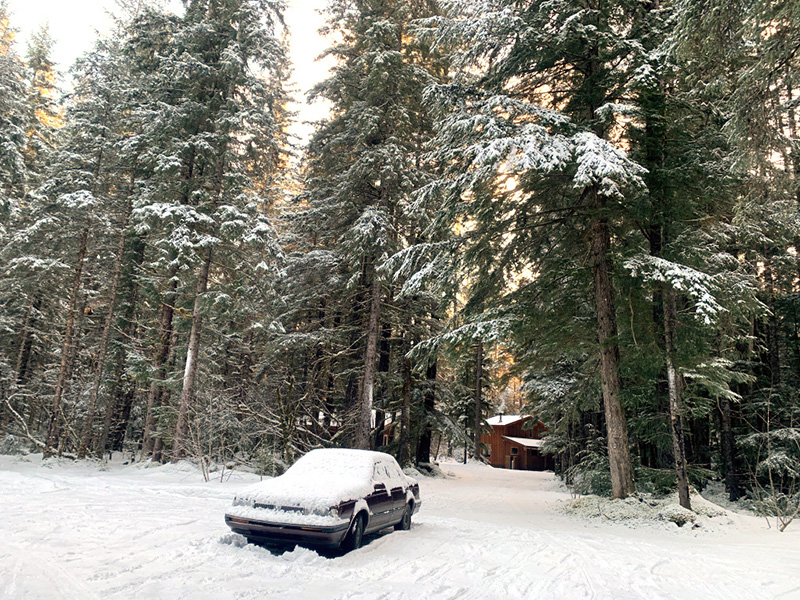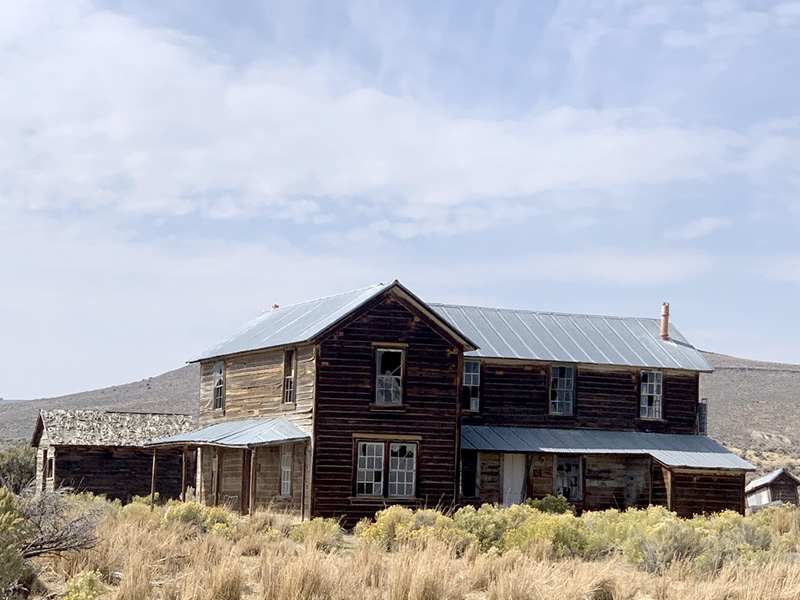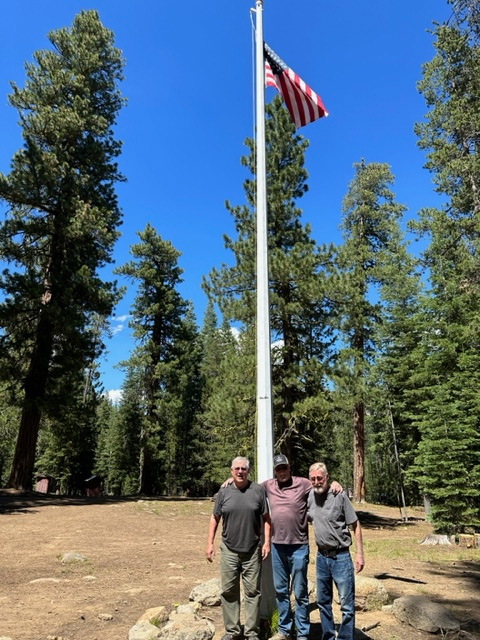A Blog of Personal Thoughts
The Woods in Alaska and the High Desert in Oregon
August 2023
I grew up in rural and urban areas, but none so rural as the woods of Alaska. One afternoon I sat on my deck and counted sounds for 20 minutes. I heard 223 nature sounds. That's 11 per minute--mostly thrush, warbler, robin songs, raven conversations, and bald eagle cries. I also heard breezes and animal footsteps. I heard no human sounds—no cars, chain saws, or voices. Headed to Seattle the next week, I thought I'd do the same thing there. The cacophony of traffic made it impossible to discern any individual sounds. These days, the woods in Alaska and the high mountain desert in Oregon’s Outback provide the sounds, and the silence I need. The rainforest of southeast Alaska, the planet’s largest temperate rainforest, and the cold winter and hot summer desert of Oregon sustain me.
Whether I am in the desert or the forest, I can hear birds sing and the wind blow its gentle breeze. I know the coming of a storm with its darkening skies, smell of ozone, and the drop in the temperature. I like to hear the sounds of moose crunching through Alaska’s crusted snow, or a deer trotting across the street in Oregon’s desert. It thrills me to see wind bend the evergreen trees, stir leaves, or blow branches.
 |
The woods of our cabin in Alaska, the cabin in the background. Most of my Alaska photos are in the winter, my favorite season. |
I find it hard to be in cities anymore. I find myself wondering how, and why, people live with such cacophony. Constant noise. What happened to silence? At the moment, and perhaps for several days or a few weeks, we don’t have internet or 911 service due to a forest fire fifty miles to our west. It burned eighteen miles of phone and fiber optic cable lines. We drove through its smoke and roadsides smoldering on our way here. As I looked deeper into the forest, I saw larger columns of smoke rising from the bed of pine needles that covered the forest floor. The National Forest Service was out in force for this 2,500-acre fire. Hopefully, the wind won’t blow too hard and make it larger. Residents have been evacuated and Oregon’s governor has declared a state of emergency. Yes, we have a state of emergency not only for Oregon and the Northwest but for the entire planet.
How long have we had the internet to keep us in a state of immediate knowledge? Almost 30 years. We have grown accustomed to the constant visual and auditory noise of news and rumor bombarding us. Yesterday, I heard that the radio stations told people not to get their “news” about the fires from Facebook! Who would believe that Facebook offered news? I’m not sure how people could get on their computers at all anyway. Instead, I look out the window. Can I see Black Cap 1,500 feet above the valley floor? In previous forest fire summers, I’ve not seen it at all or I’ve seen it very dimmed to a smoky outline.
We drove east to Guano Valley where the Barry Ranch is and then on to the Shirk Ranch. The mountains to the east dimmed and Dougherty Slide, that steep road that overlooks the valley, had disappeared. Smoke from fires just west had left the barest outline of the hills. We drove the distance from the road to the Barry Ranch and walked about the Barry Reservoir. It had more water in early March than now, the end of July, but it was still very full, down about four feet due to evaporation in the desert and another four feet for watering cattle.
We drove on to the Shirk house, the one where my husband, Robbie, went in summers when he was a little boy. We walked around outside among the shoulder-high sagebrush. The holding tank is still just about to collapse. It used to hold a few thousand gallons of water for the horses and one hundred gallons went to the house for Grandmother Barry’s use for cooking and cleanup. Grandmother Barry, a gracious lady fresh from the green fields of Ireland seemed to take the hardships of desert living in her stride.
 |
The Shirk Ranch house. I imagine all windows had the glass replaced and doors fixed as well. I imagine the inside fixed up well enough to stay in it for a few weeks and write in the room where everyone, family and ranch hands, ate. I picture a wood table and a few chairs. |
I often imagine what it would be like to live out there with no electricity, minimal water for cooking and drinking, an outhouse, and her 12 children. She never complained, but then, she was too dignified to complain about anything. I picture my living out there with my husband, doing all the chores necessary to keep things going, writing by hand, walking every day to explore Guano Valley, riding a horse to go farther, enjoying the silence interrupted only by a bird, bellowing cow, the wind, or an occasional human. I think I would enjoy that solitude for about three weeks and then head back into town for running water, more food, transcribing my writing to my computer, and talking people in this small town of Lakeview. I dream of such solitude whenever we go there.
What do I hear now as I sit at my desk in town? My husband in the kitchen. Birds. A shovel as they remodel the children’s park catty-corner to the house. A car passing by.
Yesterday we returned from four days camping out at Upper Cottonwood Lake in the forest of this county. It was Robert’s 75th Birthday Party Lakeview High School class reunion.
 |
Robbie, Rich, and Richard, three members of their Boy Scout troop, after raising the flag for the reunion at Camp Cottonwood.
The flag was from Robbie’s father’s funeral. |
They had missed one due to COVID and two years later came along the year of turning 75. Most brought their RVs, some went home to sleep in their own beds and return the next days. Robbie, as his classmates call him, and I were the only ones to sleep in a tent. When we crawled out in the dark of the night, we looked up at a star-filled sky.
We don’t see that in Alaska because we live in a rain forest and have light nights in summer. The smells are different. Here we smell ponderosa pine; there we smell spruce and ocean. It doesn’t matter for both are filled with natural beauty, silence, and solitude.

|
